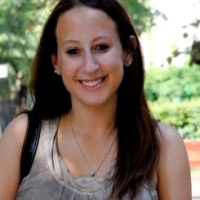The Israeli Finance Ministry’s new budget proposal states, among other things, that ultra-Orthodox schools will need to dedicate at least 55 percent of school hours to teaching the Ministry’s core curriculum if they wish to receive any state funds.

Though there are many serious, substantive problems in Israeli education that necessitate reform, and not all of them will be remedied by this new proposal, the bill does plan to address one fundamental problem facing the future of a democratic Israeli citizenry: civic education.
This past summer I traveled to Israel to learn more about how they teach civic education. I wanted to understand if and how the Israeli government fosters a sense of civic solidarity amongst Israelis who are divided into sometimes quite distinct public schools. Public schools, from a Durkheimian sociological perspective, are institutions meant to cultivate citizens—individuals with a shared understanding of norms, values and expectations of their society.
Within Israeli public education there exist four main school systems: an ultra-Orthodox system, a national religious system, a secular system and an Arab system. According to Israel’s Central Bureau of Statistics, the total number of students in the education system is expected to grow from 1.579 million students in 2013 to 1.695 million students by 2017—an increase of approximately 7.3 percent, at an annual growth rate of 1.83 percent.
The ultra-Orthodox student population is the fastest growing in Israel, with an average annual growth rate of 5.7 percent. The Arab student population, with an average annual growth of 3.4 percent, is the second fastest growing demographic. It is projected that by 2017, ultra-Orthodox and Arab students will make up 44 percent of all Israeli students. By comparison, the secular education system showed an annual growth rate of 0.1 percent.
The Executive Director of the Taub Center for Social Policy Research in Israel, Dr. Dan Ben-David, has been studying these population trends. If Ben-David’s findings continue on their current trajectory, it is projected that by the year 2040, 78 percent of primary school students will study in either ultra-Orthodox or Arab school systems.
There is nothing wrong with a changing demography, but it is important to ensure that there is an educational structure in place to prepare any and all citizens to participate in democratic society. As it stands now, ultra-Orthodox students are the only segment of Israeli society not required to formally study civics; this includes topics like minority rights, free speech and voting. The democratic future of Israel is already at risk, and this seems to add yet another unhelpful variable.
When I asked a representative from the Ministry of Education if this seems to present a great future challenge for socializing citizens, she replied, “Oh yes. It’s a big problem. But there are lot of politics involved so it is very hard to change.”
However, it seems as though the politics might indeed be changing. Newly appointed Education Minister Shai Piron said recently that he would refuse to fund institutions that do not teach civics, math and English. He declared, “The State cannot fund something that goes against its interests."
To be sure, organizations are already coming out to say that the proposal does not go far enough. Hiddush, an NGO that promotes the separation of synagogue and state, has criticized the bill, saying that it’s essentially “meaningless” because schools would only have to integrate 4-6 hours a week of core curriculum—an hour or less a day. Given that the core curriculum includes subjects like English, mathematics, science and Hebrew, it is unclear how these would be divided, and what role civics would play in such a division.
In Israel, policymakers are looking for a more equitable way to share both the resources from, and the maintenance of, a modern Western society. Addressing the role that the ultra-Orthodox play is a key step in that process. But when thinking about Israel’s future, it is important that civics be strongly prioritized as well. It is, arguably, most “core” of all.





